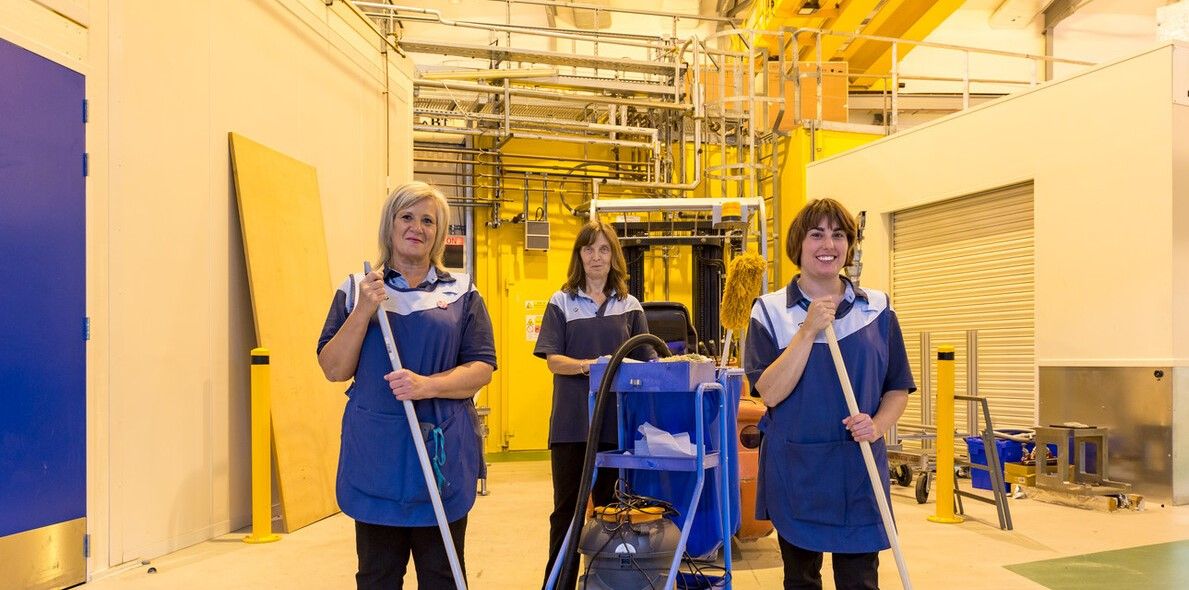
Trade unions are changing the way we think about menopause in the workplace
The menopause has been a longstanding campaign for trade unions, and Wales TUC has been working on it for nearly a decade.
During that time, I’ve been proud to see how unions have pushed employers to do more for workers going through the menopause.
Unions have won changes which may seem small but have a huge impact, such as access to adequate toilets and drinking water.
But they’ve also taken on the bigger issues such as risk assessments, flexible working patterns and representing women who were about to be dismissed for symptoms associated with their menopause. And we’ve changed policies in all Welsh public sector jobs and beyond.
Here’s just a sample of the ways trade unions in Wales are improving the workplace for women going through the menopause.
- USDAW has worked with some of the largest supermarkets to introduce changes to the material of workers' uniforms so that they aren’t as easy to overheat in. They now provide proper rest breaks and allow for reasonable adjustments for workers going through the menopause.
- CWU, the union representing postal and telecom workers, has won cases for members who have been close to losing their jobs – where the employer made workers take their own annual leave for operations such as hysterectomies.
- UNISON has worked with health boards to set up menopause cafés, negotiate changes in menopause policies, highlight role models and deliver worker training.
- Teaching unions have worked with local authorities to get a menopause policy in every school, and are working towards rolling out menopause training in schools.
- Trade Unions have worked to negotiate changes to the policies of all public sector workplaces. This means that all workers in Wales who work in the devolved public sector have a menopause policy and their employer should be taking action to make sure they are making life easier for those going through the menopause.
Read how Suemarie from Denbighshire County Council helped her colleagues – both women and men – learn about the menopause through WULF funded training.
- Unions have worked with doctors surgeries and GPs to promote menopause awareness in surgeries. We’ve also worked with the Welsh Government to make this a key issue. We’ve given evidence to the Westminster Government All party group and spoken to the Senedd’s cross party group on Women’s health.
- Unions representing office workers such as Unite and GMB have worked to make sure that there’s proper training in place for managers, that there are temperature controls in the workplace and that reasonable adjustments are negotiated to allow for flexible working patterns.
- Transport unions like the RMT have made sure that women going through the menopause can access support, that any sickness absence shouldn’t penalise menopause related absence and working arrangements are flexible, giving workers more breaks.
- Trade unions have been working with British Standards Institute to develop a menopause at work standard, which will be live by Spring 2023. This will set an agreed way of working on the menopause and will create best practice and a precise criterion on what employers should be doing on the menopause.
- Trade Unions have worked with ACAS to improve guidance on what employers could do to support staff who are going through the menopause
How to get help with the menopause at work
If you’re currently experiencing issues at work because of the menopause it’s important that you speak to someone. Your union rep can help you talk to your employer about what adjustments can be made to help you.
Not in a union? Find out which union to join today
If you’re a rep or colleague wanting to help someone who’s going through the menopause. download our Menopause in the Workplace Toolkit and use our online learning guide about the menopause.

